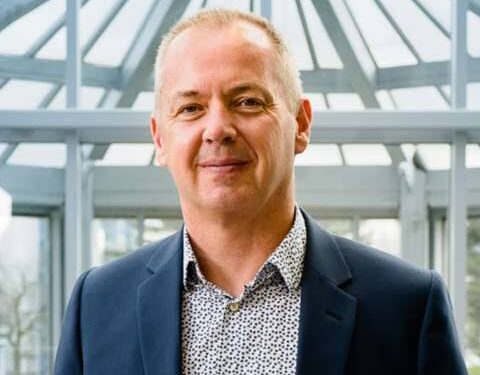Written by Jason Snape, Head of Environmental Protection, AstraZeneca
The biopharmaceutical industry is one among many looking to implement a circular economy.
Pharmaceuticals are currently approved irrespective of environmental risks – a special status that may change.
By identifying environmental concerns early, risks can be mitigated to ensure that patient access to medicines does not compromise the planet.
The COVID-19 pandemic has, in a short time, had a long-lasting global economic, social and personal impact. As we look to the future and to economic recovery, how can we move forward on a more sustainable basis?
This question is at the heart of a new 10-point action plan reflecting the work of the Sustainable Markets Council (SMC), established with the support of the World Economic Forum (WEF) in September 2019.
The paper highlights the exciting potential for a sustainable global circular bioeconomy, which places people and environmental prosperity at the forefront of economic recovery.
At its centre is a new framework for transforming and managing our land, food, health and industrial systems – working in harmony with society and the natural environment.
This shift to a circular rather than linear approach will take time and there are several challenges for global sectors, including the biopharmaceutical industry, to act on.
These include:
ensuring strategy and decision-making are guided by nature and our impact on the environment;
intensifying research and education efforts across multiple disciplines to deliver whole-system solutions;
developing co-creation innovation practices alongside local partners and communities;
establishing cohesive policies for climate, land/site management, waste, water and health;
creating an enabling and transparent global regulatory agency approach.
The circular bioeconomy and big pharma
The world was already waking up to the economic as well as environmental need for the shift from a linear to a circular approach for a sustainable future. Most investors, governments and healthcare providers have aligned on the need to set greenhouse gas reduction targets and are scrutinizing their indirect carbon emissions related to the goods and services they procure and the companies they invest in.
Such shifting market demands are seeing healthcare systems take a holistic view of the entire care pathway: the environmental impact of the medicine itself, use of power and resources by the organization and its supply chain, and the impacts of patients with poorly managed chronic disease.
For example, with 5.4 million people in the UK with asthma – and a single inhaler having the same carbon impact as a car journey of 180 miles – the National Health Service (NHS) is working to halve the carbon impact of inhalers by 2028.
Additionally, the organization’s Sustainable Healthcare Coalition has developed guidance to evaluate the environmental impact of existing health and care pathways and consider sustainability when designing or redesigning models of care.
Connecting people’s and the planet’s health
A healthy planet is essential for human health. We all need to come together to act on an environmentally sustainable economic model to deliver global health, taking integrated action to protect and support people and planet, and to work with local communities.
From green substitution to green procurement, through to solvent recovery, water reuse, and understanding and minimizing the environmental footprint of our medicines, AstraZeneca’s ambition is to be part of the global transition to an economy that best serves patients, society and protects our environment.
The need to connect the health of people with the planet’s health is the key to driving more sustainable solutions for healthcare, given the vast cost to our well-being of air, water and soil pollution, as reflected by an estimated 9 million premature deaths globally.
By supporting healthy environments, we contribute to a healthier ecosystem and could slow – even prevent – the incidence of disease on a global scale.
There are more people globally with access to a mobile telephone than clean drinking water or basic sanitation.
We are working towards a future where all people have access to sustainable healthcare solutions for life-changing treatment and prevention, through awareness and education programmes, training healthcare professionals and activating health facilities, made more critical in the light of the impact of Covid-19.
To achieve this, all stakeholders in global health will need to review processes and resources to identify where we can innovate, where we can remove, reduce, reuse and recycle materials, and where we can ensure that need is matched to resources. This means adopting an end-to-end approach to sustainable medicines development, from discovery to end of life, with circularity at every stage.
Leading companies are setting ambitious targets that go beyond the aim set by governments around the world to be at zero carbon by 2050. AstraZeneca has pledged to be carbon zero by 2025 and carbon negative across our value chain by 2030.
Currently, pharmaceuticals are the only class of compounds that are approved irrespective of environmental hazard and risk, because the societal benefit is assumed to always outweigh any environmental impact. By identifying environmental concerns early, the risks can be mitigated to ensure that patient access to medicines does not compromise the planet.
Collectively, we must collaborate to put societal and environmental health at the forefront of economic prosperity, taking a systems-level holistic approach. This joining of forces must go beyond our own industries, so that we co-invest rather than compete for natural resources to meet business demand, and we work with governments to ensure the right infrastructure, fiscal environment and long-term vision is in place to enable change.























